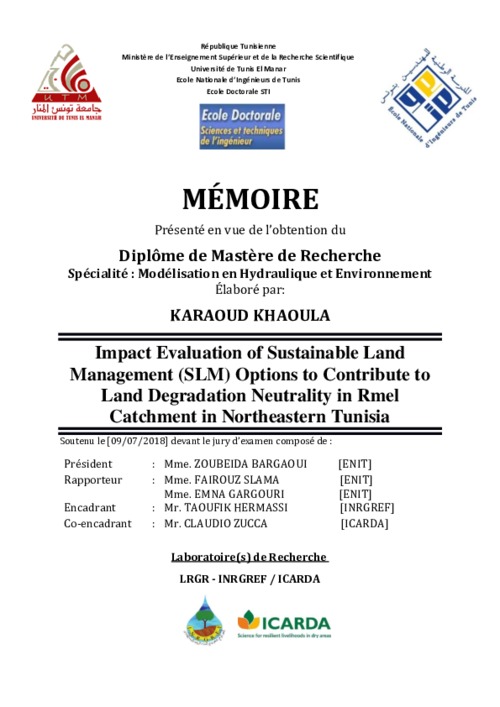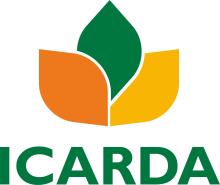Resource information
Soil erosion is a natural process causing serious land degradation problems. In Tunisia, soil
erosion represents a serious environmental problem. The Rmel watershed located in the
Governorate of Zaghouan in north-eastern Tunisia and covering an area of 679 square
kilometers, suffers from this problem. It was thus selected to estimate annual soil loss using the
Revised Universal Soil Loss Equation (RUSLE), and geographic information system (GIS).
RUSLE model’s parameters (R, K, LS, C, and P) were derived from digital elevation model
(DEM), average annual precipitation, soil type map and land cover map. They were computed
as raster layers in a GIS environment, then multiplied together to predict soil erosion rates, and
to generate a soil erosion risk map.
Based on this study, the annual soil loss varies across the Rmel watershed from 0 to 186 ton ha
-
1
-1
year
. The average and total annual soil loss potential of the study watershed was 2.18 ton ha
-
1
-1
, respectively. About 85% of the watershed was categorized
low risk class, 9.5% moderate class and 5.5% high to severe erosion risk classes.
The predicted amount of soil loss and its spatial distribution could provide indications to plan
sustainable land use and management, by showing where the potential erosion hotspots are.
The data generated by this project can contribute to improve current land management and
related economic activities by making available an impact evaluation tool for sustainable land
management (SLM) practices, to achieve sustainable economic development.
Sustainable Land Management (SLM) practices have been advocated by several worldwide
partnerships – such as the CGIAR, the United Nations Convention to Combat Desertification
(UNCCD) and Economics of Land Degradation (ELD) – but still selectively applied. This
research has been conducted in the frame of the project “Impact Evaluation of SLM Options to
Achieve Land Degradation Neutrality” a holistic, innovative initiative aiming at providing solid
geoinformatics guidance for planning and impact evaluation of SLM practices.


